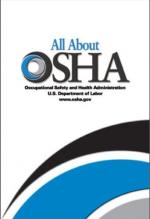|
This section contains 5,472 words (approx. 19 pages at 300 words per page) |

|
Viewpoint: Yes, OSHA regulations are an unnecessary burden for business: not only are the costs prohibitive, but the benefits are highly questionable.
Viewpoint: No, OSHA regulations aimed at preventing repetitive-motion injuries are straightforward and save businesses time and money in the long run.
Evidence of illnesses caused by occupational conditions and hazards is very old. Indeed, On the Diseases of Trades, a work often lauded as the first account of the diseases of workers, such as stone mason's consumption, painter's palsy, and potter's sciatica, was published by Bernardino Ramazzini in 1700. In twentieth-century America, Alice Hamilton served as pioneer of occupational medicine and industrial toxicology and worked tirelessly for the prevention of work-related injuries and illnesses. By 1916 Hamilton was internationally known as America's leading authority...
|
This section contains 5,472 words (approx. 19 pages at 300 words per page) |

|


